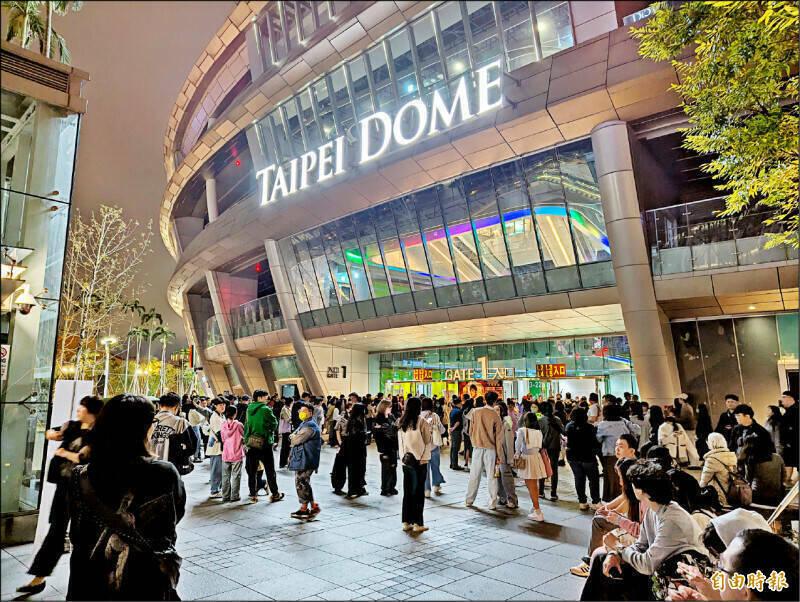The Taipei City Government yesterday defended fining ticket scalpers 10 or even 50 times the face value of their tickets, reminding the public that any markup added to tickets during resale is illegal.
The city justified its approach following a social media post by Taipei City Councilor Tseng Hsien-ying (曾獻瑩), which highlighted some of the heavy fines the city has issued and questioned whether people are sufficiently aware of scalping laws.
In one example last year, a person reselling a single ticket to a Jay Chou (周杰倫) concert for a higher price was fined NT$244,000 (US$8,066), or 50 times the ticket's NT$4,880 face value, Tseng said.

Photo: Taipei Times
In another instance, a person selling two tickets to a Post Malone concert overseas at face value plus "two cups of Starbucks coffee" was fined NT$46,000, or 10 times the combined value of the tickets, he said.
Tseng said that 36 people fined by the city for scalping this year had appealed their penalties, suggesting that some Taipei residents do not know the laws governing ticket resales.
To prevent people from inadvertently violating the law and being fined, the city should step up efforts to raise public awareness ahead of major concerts, Tseng said.
In a statement issued later that day, the Taipei Department of Cultural Affairs said it would continue to raise awareness through social media and other means to remind the public not to buy from ticket scalpers.
Under the Development of the Cultural and Creative Industries Act (文化創意產業發展法), local authorities can issue fines that are 10 to 50 times the face value of the tickets, depending on the number of tickets being sold, the department said.
Even if the tickets are advertised with a markup but not sold, or if the markup is in the form of a beverage on top of the ticket's face value, it is still illegal, the department said, adding that people who feel they have been unjustly penalized can appeal the fine.
As of yesterday, Taipei had issued 147 fines this year to ticket scalpers for a total of NT$34.7 million, with the largest individual fine being NT$2.64 million, the department said.

A small number of Taiwanese this year lost their citizenship rights after traveling in China and obtaining a one-time Chinese passport to cross the border into Russia, a source said today. The people signed up through Chinese travel agencies for tours of neighboring Russia with companies claiming they could obtain Russian visas and fast-track border clearance, the source said on condition of anonymity. The travelers were actually issued one-time-use Chinese passports, they said. Taiwanese are prohibited from holding a Chinese passport or household registration. If found to have a Chinese ID, they may lose their resident status under Article 9-1

Taiwanese were praised for their composure after a video filmed by Taiwanese tourists capturing the moment a magnitude 7.5 earthquake struck Japan’s Aomori Prefecture went viral on social media. The video shows a hotel room shaking violently amid Monday’s quake, with objects falling to the ground. Two Taiwanese began filming with their mobile phones, while two others held the sides of a TV to prevent it from falling. When the shaking stopped, the pair calmly took down the TV and laid it flat on a tatami mat, the video shows. The video also captured the group talking about the safety of their companions bathing

PROBLEMATIC APP: Citing more than 1,000 fraud cases, the government is taking the app down for a year, but opposition voices are calling it censorship Chinese Nationalist Party (KMT) Chairwoman Cheng Li-wun (鄭麗文) yesterday decried a government plan to suspend access to Chinese social media platform Xiaohongshu (小紅書) for one year as censorship, while the Presidential Office backed the plan. The Ministry of the Interior on Thursday cited security risks and accusations that the Instagram-like app, known as Rednote in English, had figured in more than 1,700 fraud cases since last year. The company, which has about 3 million users in Taiwan, has not yet responded to requests for comment. “Many people online are already asking ‘How to climb over the firewall to access Xiaohongshu,’” Cheng posted on

A classified Pentagon-produced, multiyear assessment — the Overmatch brief — highlighted unreported Chinese capabilities to destroy US military assets and identified US supply chain choke points, painting a disturbing picture of waning US military might, a New York Times editorial published on Monday said. US Secretary of Defense Pete Hegseth’s comments in November last year that “we lose every time” in Pentagon-conducted war games pitting the US against China further highlighted the uncertainty about the US’ capability to intervene in the event of a Chinese invasion of Taiwan. “It shows the Pentagon’s overreliance on expensive, vulnerable weapons as adversaries field cheap, technologically